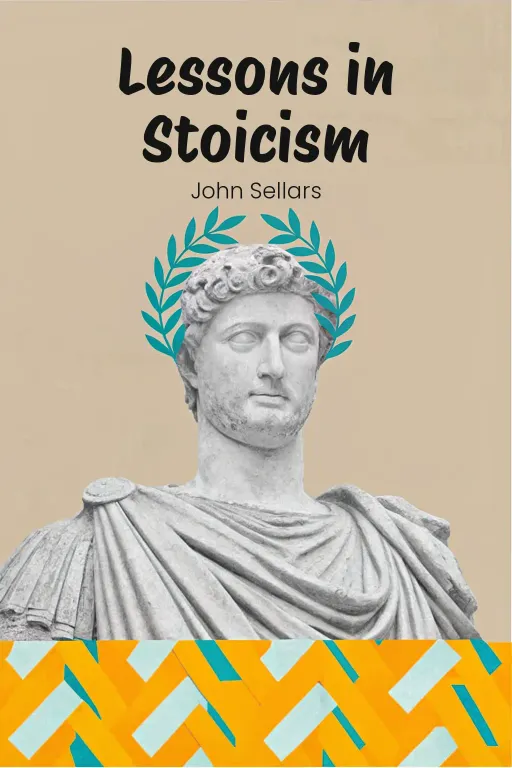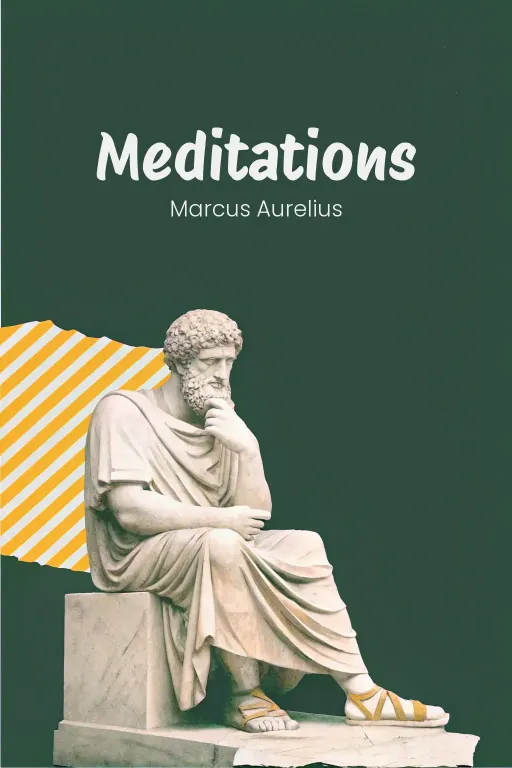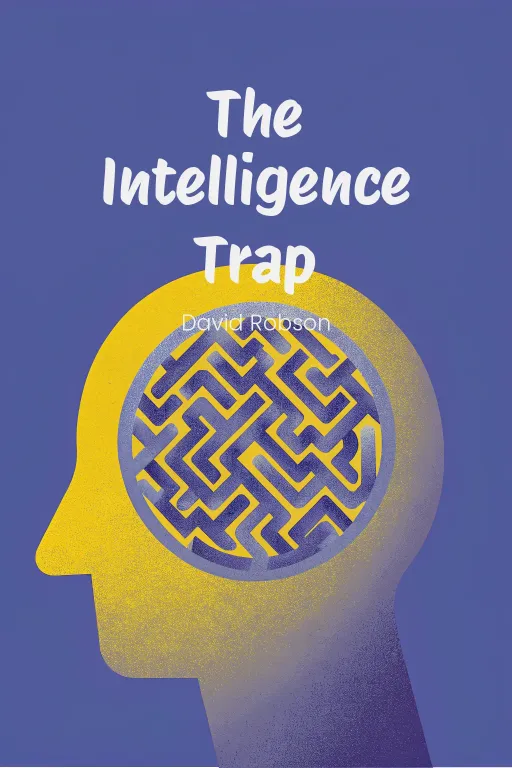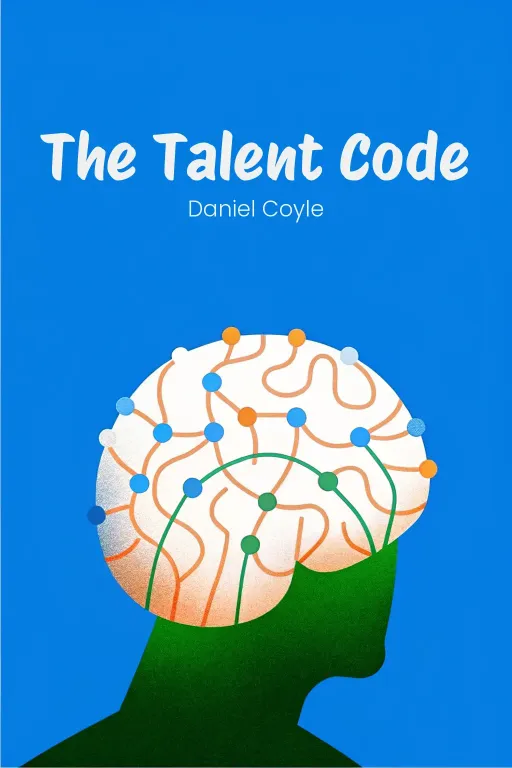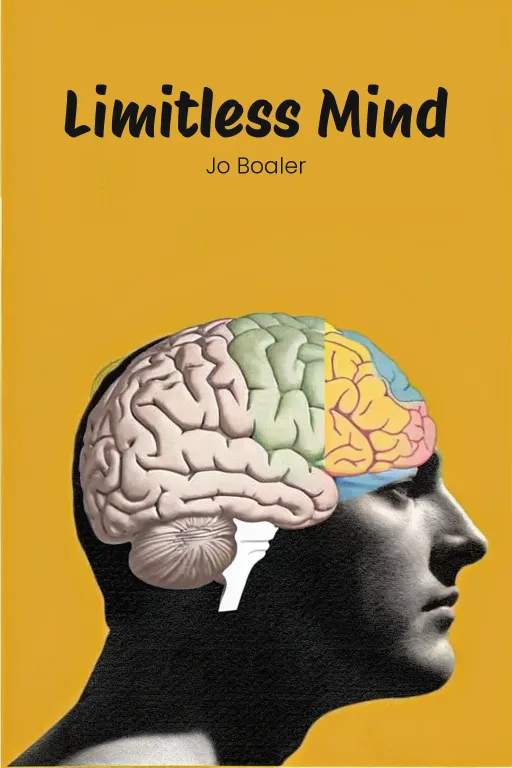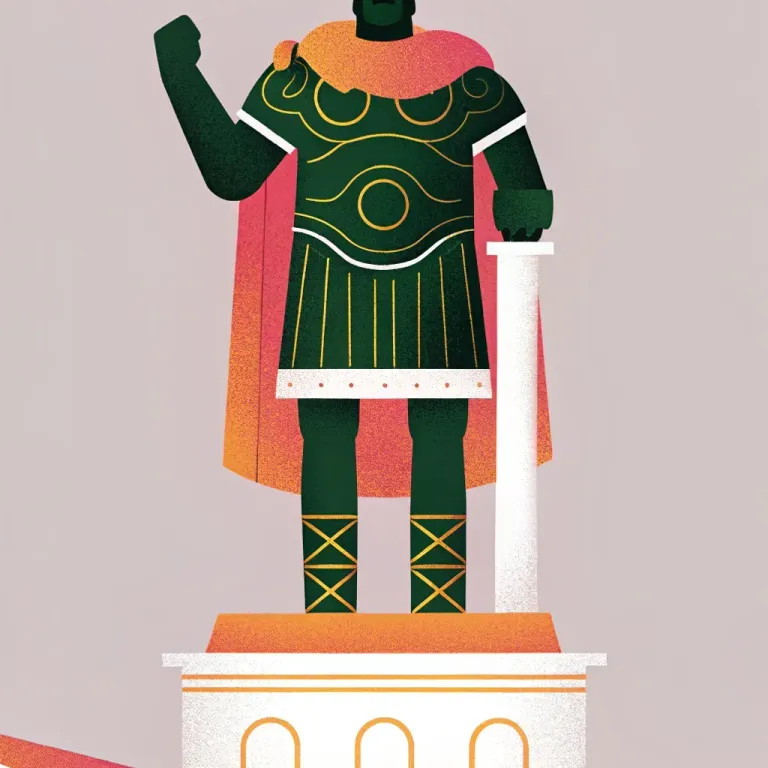
Control Your Chaos: Stoic Hacks
Podcast by Beta You with Alex and Michelle
What Ancient Philosophers Teach Us about How to Live
Control Your Chaos: Stoic Hacks
Part 1
Alex: Hey everyone, welcome back! Today we're jumping right into Stoicism, one of the most practical and enduring philosophies out there. Whether you're dealing with stress at work, navigating major life changes, or just trying to stay calm during your commute, this episode is for you. Michelle: Exactly. Because who doesn't want advice from the ancient Romans on how to handle modern-day frustrations, right? We're looking at John Sellars' Lessons in Stoicism today. Consider it a user manual for a better life, without needing togas. Alex: Sellars does a fantastic job of breaking down the lives and philosophies of three Stoic giants: Seneca, Michelleus Aurelius, and Epictetus. This book teaches you to identify what you can control, manage your emotions effectively, and face difficulties with strength. It all boils down to being authentic to yourself and the world around you. Michelle: Stoicism then: ancient self-help meets modern survival skills. Today, we're distilling it into three core concepts. First, concentrating on what's within your sphere of influence and releasing the rest—it’s like Marie Kondo for your mind. Alex: Then, we'll delve into mastering your emotions. Let's be real, feelings can sometimes feel like a stormy sea, right? But with some Stoic insights, you can learn to steer your own ship. Michelle: And lastly, using life’s inevitable curveballs to your benefit—think of a blacksmith who makes stronger steel through fire. It's about transforming obstacles into opportunities... which sounds straightforward in theory, doesn’t it? Alex: But that's what’s great about Stoicism—it's not only theoretical. It's practical, it’s about actually doing it. So, let's get into the wisdom of the ancients and discover how to live more bravely, clearly, and purposefully.
The Dichotomy of Control
Part 2
Alex: Okay, so let's dive right in, shall we? The cornerstone of Stoicism: the Dichotomy of Control. It's really the foundation for everything else. Michelle, how would you explain it simply? Michelle: In a nutshell? Focus on what you can influence, and stop stressing about what you can't. Of course, the Stoics phrased it with a bit more… elegance. Epictetus put it as, "Some things are up to us, some things are not." Almost feels like the world’s first life hack Tweet, doesn't it? Alex: Totally! And what's so brilliant is how straightforward it sounds, yet there are so many layers once you really dig in. The key is directing your energy toward your thoughts, your decisions, your actions—the things you genuinely have sway over—and releasing your grip on external factors. I mean, things like outcomes, what other people do, or just plain random chance. Michelle: Right, I get the theory. Let's get practical. I'm bumper-to-bumper on the highway—a modern-day plague. I can't make the cars in front of me move faster, I can't teleport, I can't change the timing of the lights. So, I can control… what exactly? Alex: Your reaction to it. Instead of getting all worked up, maybe you choose to listen to a podcast – a really insightful one, perhaps? – or just use the time to practice patience. The Stoics argue that the anger doesn’t come from the traffic itself, but from how you’re interpreting the situation! Michelle: True. But admit it, doesn't it feel a bit "easier said than done"? Okay, deep breaths, calming music… Still doesn't make the exit ramp appear any sooner. Alex: No magic solutions here, sadly. But the point the Stoics make, I think, is that we often squander so much mental bandwidth trying to wrestle with things we're never going to win against. I mean, think about it, does fuming in your car actually clear the roadway? No! So, choosing your response is really about taking back your agency and, well, your sanity. Michelle: Alright, I'll grant Epictetus some credit. The issue isn't the traffic jam; it's me melting down about it. Fair enough. But what about bigger stuff –like, say, getting laid off? That’s not just a minor annoyance. How does the Dichotomy of Control play out then? Alex: That's where Stoicism really shows its value, I think. Ok, so losing your job is obviously a major external event, and sometimes, despite your best efforts, you can't prevent that. However, how you choose to respond to that event, what you do moving forward, is where your power lies. Are you going to let it devastate your sense of self-worth? Or will you laser-focus on the stuff you can do? I mean, polishing your resume, reaching out to your network, or finding ways to keep your spirits up during the job hunt? Michelle: I get it. So here's Michelleus Aurelius, who was an emperor, by the way, no small potatoes. He said that you should strip any event of its emotional value, right? So instead of thinking, “This is a disaster!”, you just state, plainly, objectively, “This happened.” Just the facts, ma'am. Alex: Yes! He even suggested describing things super literally, you know? Like, "I've lost my fortune" could become, "A sum of money is no longer in my possession." It creates a buffer zone between the event and your gut reaction, gives you that bit of clarity. It’s not about shoving down your emotions, it's about seeing them for what they are, so they don't become overwhelming. Michelle: Right, but I can already hear some folks saying that all sounds a bit cold, a bit… robotic. Like, "Oh, so you want me to just stuff my feelings in the filing cabinet and move on?" What would you say to those folks? Alex: I’d say, hold on, it's the opposite! Stoicism is not about being anti-emotion, it's about being pro-understanding them. Reframing something doesn't mean you won't feel sadness, grief, or disappointment. It just prevents those emotions from running the show. Think of it as emotional regulation, not emotional denial. Michelle: Emotional regulation—sounds very contemporary, very "CBT therapy." And speaking of modern life, let's come back to today. Okay, so we've got all these gadgets now—the traffic apps, the calendar alerts—and yet everyone seems more on edge than ever! Why? Are we just obsessing over trying to orchestrate the un-orchestratable, maybe? Alex: I definitely think that's part of it. The Stoics would say that so much of our angst comes from wanting to micromanage every little thing. "Stop chasing control," as they might have said, "and it won't control you." They put this stuff into practice too; I mean, look at Epictetus—he was a slave! You would expect him to be consumed by bitterness or resentment, but instead, he chose to master his inner world. Michelle: Ah, the leg story! So his owner basically starts torturing him, twisting his leg, and Epictetus says, all calm, "If you keep twisting it, it will break." Obviously, the owner is a jerk and doesn’t stop, leg snaps, and Epictetus just goes, "Didn’t I tell you it would break?" Talk about staying composed. Alex: It’s such a powerful example of the Dichotomy of Control. He couldn’t stop the physical abuse from happening to him, but he refused to let his mind descend into fury or despair. For him, the victory was maintaining that inner clarity, even while his body was suffering. Michelle: Impressive, sure. But let's be honest—most of us aren't shooting for sainthood here. We just want to know, realistically, how does this help us navigate the chaos of everyday life? What can you share? Alex: Good question… Okay, so one practical way is to pause when you’re feeling overwhelmed or stressed and ask yourself, “What specifically can I actually influence in this situation?” Maybe you're dealing with office politics. You can't control how your colleagues act, what they say, but you can control how you choose to behave—your ethics, your personal boundaries, the level of effort you put in. And that simple distinction can be incredibly freeing. Michelle: Okay, but this is where things get murky. Giving up control sometimes feels like you're just waving the white flag. Like, shouldn't we fight for the things that are important to us instead of simply "accepting" them? Alex: Good point, and the Stoics would totally agree! Letting go doesn't equal giving up. It's about directing your energy strategically. Hey, Epictetus wasn't passive; he taught and shaped countless lives. And Michelleus Aurelius? He ran an empire—no small feat! They let go of worry, not action. Michelle: Ah, so we’re talking about being laser-focused—directing your energy at what's actually doable. That's the "agency" part, right? Alex: Exactly! When you stop wasting energy on things you can't change, you actually free up your resources to make a difference where you can. It's about where we choose to channel our energy. Michelle: Alright, I'm on board – maybe fewer fruitless rants behind the wheel. But Alex, what happens when people hold on too tight to control and fail at all of this? Alex: Actually, that’s the perfect lead-in to…
Emotional Regulation through Rational Judgment
Part 3
Alex: ...how we manage our emotional responses to events beyond our control. Which brings us to our next big idea: emotional regulation through rational judgment. This, to me, is where Stoicism really takes off. It’s not just about accepting what you can’t change; it's about genuine emotional mastery, achieved not by suppressing feelings, but by understanding them. Michelle: Ah, yes, the promise of conquering your inner chaos and achieving Zen-like serenity. But remind me—what exactly “is” the Stoic position on emotions? Aren’t they the ones always telling you to just bottle it all up? Alex: That's the common misconception! Stoicism isn’t about suppressing emotions; it's about reframing them. Think of emotions as a “result” of our judgments. Epictetus, for example, said that it’s not events themselves that upset us, but our “interpretations” of those events. So, your frustration isn't simply because someone cut in line—it's your “judgment” that their action was some unforgivable offense. Michelle: So, it’s not "You made me angry," but "I “allowed” myself to get angry because of your cutting in line." That’s… well, on the surface, it's not that satisfying, really. Alex: Maybe not initially, but it’s incredibly empowering in the long run. The Stoics would say anger, frustration, jealousy—these are essentially optional reactions. You can take a step back and reconsider your take on the situation. Think about Michelleus Aurelius’ approach: he'd strip situations of all that emotional drama and just see them for what they are. "This person interrupted me." That’s it. No insult, no existential crisis—just the bare facts. Michelle: That’s fascinating in theory, but how do you deal with those emotions that hit you “before” you even have time to think? I mean, anger, fear—they’re instinctive. You don’t exactly “choose” to feel them; they just erupt. Alex: The Stoics absolutely agree with that! They called those initial reactions "first movements." Seneca describes it beautifully—they’re like a flood, an initial rush that you can’t always control. But here’s the key distinction: you can’t stop the flood from starting, but you “can” decide whether it escalates into a full-blown dam collapse. Michelle: So, step one: acknowledge the flood. Step two: don’t let it wreck everything. Alright, I’m curious—what’s the trick to containing this emotional deluge, besides just muttering, "What would Michelleus do?" Alex: Well, one tool the Stoics really valued was reframing. Michelleus Aurelius practiced this constantly himself. If someone insulted him, he’d reframe their behavior and think, “Maybe they’re acting out of ignorance or stress.” It's not about excusing the action, but it stops the emotional chain reaction in its tracks. Michelle: I get that “intellectually”. But “emotionally”? If someone insults me in a meeting, my first move isn’t to ponder their ignorance—it’s to prepare to counterattack. How can you actually reframe things in the heat of the moment? Alex: It definitely takes practice. Think of reframing as a mental muscle that you develop over time. The Stoics suggested daily reflection—maybe journaling about situations you handled poorly and considering how you could’ve reacted differently. Over time, this changes how you interpret emotional triggers. Michelle: Okay, so it’s like a Stoic workout plan for the mind. Give me a practical example, then. Let’s say I’m stuck in a disagreement with a… difficult coworker—what would the Stoics prescribe? Alex: Epictetus might suggest starting by thinking about what's in “your” control. You can’t control their behavior, but you “can” reframe your judgment of the situation. Maybe instead of automatically assuming malice—that they’re out to get you—you consider that they might just be having a bad day or seeing the problem from a limited perspective. That mindset reduces your immediate anger and helps you respond with greater clarity. Michelle: Alright, I see the potential… but isn’t this just letting people take advantage of you? At some point, don’t you have to stand up for yourself and call out bad behavior? Alex: Absolutely. And the Stoics weren’t pushovers. Seneca, for example, didn’t avoid confronting wrongdoing but he did so calmly, not furiously. It’s not about ignoring bad behavior, but about engaging with it rationally and constructively. If anything, managing your emotions actually gives you an advantage—you’re not just reacting; you’re being deliberate. Michelle: I see what you’re saying—keeping your cool isn’t weakness, it’s strategy. But let’s be realistic about the modern world. We kind of “love” indulging our emotions, don’t we? Rage tweets, passionate rants—they’re practically currency these days. How does Stoicism even fit into a culture that seems to reward emotional overreaction? Alex: That’s a tough one. We definitely live in a time where extremes get attention. But the Stoics would remind us that our emotional indulgences often cost us more than we realize—lost energy, strained relationships, unnecessary stress. Regulating our emotions means we regain control over our choices and actions, and that’s much more powerful than getting caught up in the emotional noise. Michelle: Alright, fair enough. Let’s shift gears a bit. You mentioned earlier how Seneca described anger as a flood—that’s pretty vivid. What other analogies did these guys use to push this idea of emotional control? Alex: Oh, Seneca also called anger "temporary madness," which is a pretty stark image, isn't it? Like something that completely clouds your judgment and leads to destructive decisions. He also described it as a "boiling pot" that needs time to cool before it boils over—very practical advice, even today. Basically, pause, breathe, and remember that anger isn’t strength; it’s often a sign of weakness in disguise. Michelle: Okay, I like that—the pot metaphor. But does it just apply to anger, or did they have this kind of insight for, say, jealousy? Or are the Stoics leaving all the complicated relationship stuff unsolved? Alex: They actually tackle it head-on! Love and jealousy were big themes for them. They argued that jealousy stems from insecurity, which is, at its core, a judgment. Think about it: jealousy says, "If I lose this person’s affection, I lose my own worth." The Stoics would reframe this—your worth isn’t tied to someone else’s opinions or actions. It’s rooted in how you live your values and stay true to yourself. Michelle: Ah, so it’s about love without all the messy attachment issues? Good luck selling “that” to the world, Alex. Alex: It’s definitely counterintuitive, but it’s so freeing! If you approach relationships from a place of mutual respect and shared values—instead of possessiveness or insecurity—you build bonds that are ultimately stronger and healthier. Michelle: Alright, touché. So, basically, the Stoics were like ancient therapists, giving us CBT before modern psychology even existed. Seems like a good place to stop for now and let that sink in, don’t you think?
Adversity as Opportunity for Growth
Part 4
Alex: So, the next key to Stoicism is mastering emotional regulation, which helps us handle life's ups and downs with a balanced attitude. Honestly, this is where Stoicism really shines because it teaches us to see challenges as chances to grow. Not something to run from, but a way to toughen up and build character. Michelle: "Adversity as opportunity"—alright, I’m listening, but that sounds like it could be on a motivational poster, you know? Like, sunshine in the background, "It's about the journey, not the destination." So, Alex, what's the secret? How do the Stoics actually make dealing with tough stuff feel… empowering? Alex: That's a great question! It starts with reframing. The Stoics thought challenges themselves are neutral. It's how we react that makes them either good or bad. Seneca, for instance, liked to compare struggles to wrestling. He saw hardship as sparring partners, you know, helping you sharpen things like courage, patience, and staying power. Michelle: Wrestling with hardship, huh? That's a picture. I'm imagining Michelleus Aurelius in a toga doing a body slam. Seriously, though, Seneca treats hardship like it's not just bad luck – more like training. So, if life's a wrestling match, are we supposed to be excited about the tough times? Alex: Well, in a sense, yes. Seneca said hardship is key to becoming a better you. No resistance, no growth, right? Think about it: a wrestler who never faces a strong opponent isn't going to improve. So, metaphorically, life throws challenges your way, not as punishment, but as a chance to get stronger. Michelle: Okay, so we're all trainee wrestlers. But what if the "opponent" is more like Mike Tyson than some amateur? Do Stoics have actual ways to cope when life really throws a punch? Alex: Definitely. It's not just theory. They practiced premeditatio malorum, or "thinking about bad things beforehand." It's about mentally prepping for the worst, not to be scared, but to learn to stay calm. Imagine picturing a future financial setback—not obsessing, but being real—and then thinking, "What could I do? What values would help me through?" Michelle: Hold on—imagining bad stuff before it happens? Isn’t that just worrying with a fancy name? How does that even help? Alex: It might sound like worrying, but it's the opposite, really. Instead of freaking out about "what ifs," the Stoics got ready by making the fear solid, less overwhelming. By facing the possibility early, they took away its power to shock or scare them. Seneca had a good example, like losing someone you love. He said to think about the limited time you have with them, not in a sad way, but to value every moment more. Michelle: So, by expecting loss and practicing our response, we’re better able to handle it when it actually happens? That’s… surprisingly practical. But just so we’re clear, this doesn't take away the pain, right? Alex: Absolutely not. The Stoics weren’t about cutting out pain, but about managing it. Preparing this way can ease the initial shock and get you ready to handle grief or hardship. Think of it as emotional armor – it doesn’t make you untouchable, but it softens the hit. Michelle: Okay, I see how this works in theory. But this is where I get stuck. Seneca also said that adversity "selects the worthy." Like, fate gives challenges to those who can handle them. That sounds a bit… arrogant, doesn't it? What’s the point of saying that? Alex: It's an interesting, and at first glance, maybe even a bit harsh, point. What Seneca’s really getting at is that hardship can show your true colors. He's not saying life is fair or that suffering makes you virtuous. But facing struggles with strength lets you set an example and inspire others. It’s about stepping up, showing excellence, even when things are tough. Michelle: That’s a kind interpretation. But let me push back—what about people who face hard times and don’t make it through? Not everyone has what it takes to be the next Epictetus, right? Alex: That's fair. The Stoics wouldn't downplay the real difficulties people face. They were very clear about acknowledging hardship. Epictetus is a good example. He was born into slavery, was physically abused, and had lasting injuries. Yet, he turned that hardship into the base of his philosophy of inner freedom. Life wasn't fair, but he used what he could control – his judgment, his principles – to overcome. Michelle: So Epictetus’s story is the ultimate Stoic underdog story—look at what he overcame with sheer willpower. That’s impressive. But what about the rest of us who don’t wake up feeling like we’re destined to be resilience role models? Alex: You don't need to be a historical hero to use these lessons. Stoicism has tools for everyday challenges too. Seneca suggested doing small things to get used to discomfort, like fasting, sleeping on a hard bed, or skipping luxuries. These “deliberate adversities” prep you to react calmly when unplanned hardship hits. Michelle: Interesting—kind of like giving yourself a small dose of pain to build immunity. If you’ve practiced going without coffee every morning, a power outage won’t ruin your day. Or if you’ve been through social awkwardness on purpose, a real conflict feels less scary. Alex: Exactly! It’s about training your mind to adjust to trouble, discomfort, even loss. Seneca’s message is powerful: If you're familiar with life's challenges on your own terms, you won't panic when they show up unexpectedly. Michelle: Okay, I can get behind that—preparing for adversity sounds doable. But you mentioned earlier that adversity doesn’t just help you grow; it also strengthens communities. How does that work? Alex: This is where Stoicism takes on a broader view. Michelleus Aurelius often saw his hardships as chances to help others, not just personal trials. Leaders, for example, face struggles to show resilience and guide their communities. When people face hardship with wisdom, they spark empathy and unity, which creates a ripple effect for the common good. Michelle: So adversity isn’t just about self-improvement – it’s about setting an example that can lift up a whole community. That’s a compelling layer. But let’s bring it back to reality. If someone’s dealing with job insecurity or grief—does focusing on making contributions to society really going to matter to them? Alex: It might, if you frame it right. When you face struggles honestly, you’re not just dealing with them for yourself – you’re showing others that it’s possible. It creates a shared sense of humanity. Michelleus Aurelius reminded himself that all our actions, even when facing challenges, ultimately contribute to the harmony of the whole. Michelle: So adversity isn’t just a personal wrestling match—it’s part of this interconnected, cosmic tag team. Alright, Alex, you might be winning me over. But just so we’re clear, we’re still allowed to complain about traffic now and then, right? Alex: A little venting is fine—just make sure you don’t let the traffic, or the complaining, control you!
Conclusion
Part 5
Alex: Okay, so let's recap. Today we dove into three big Stoic ideas, right? First, the Dichotomy of Control—focusing on what you “can” control and, crucially, letting go of what you can't. Second, regulating your emotions through rational thought—reframing feelings to stay balanced, without suppressing them, of course. And finally, viewing challenges as opportunities for growth, whether it's building your own resilience or inspiring others. Michelle: Exactly! And these Stoics weren't just pontificating from ivory towers, were they? They actually “lived” this stuff. I mean, Epictetus turned his experience as a slave into a masterclass on mental freedom. Seneca reconceptualized anger as a kind of temporary insanity. And Michelleus Aurelius, running an entire empire, still found time to scribble philosophical pep talks in his journal. Impressive, right? Alex: That's why Stoicism resonates so deeply, I think. It's practical, relatable, and still relevant today. Life is always going to throw curveballs, but it's how we “respond” that truly defines us. Michelle: So, the takeaway for everyone listening: next time life throws a wrench in the works—or, hey, you're just stuck in traffic—take a breath. Ask yourself, what can I actually “do” about this? Focus your energy there. And whatever's completely outside your control? Just… let it go. It's not giving up; it's being strategic. Alex: Absolutely. And maybe start small! Think about a daily annoyance—something that really got under your skin—and consider how you “could” have responded differently. Stoicism isn't about being perfect, it's about practicing. Michelle: Well said, Alex. Cheers to fewer pointless rants and more clarity! Alex: Exactly! Thanks for tuning in, everyone. Stay curious, stay calm, and we'll catch you next time.

